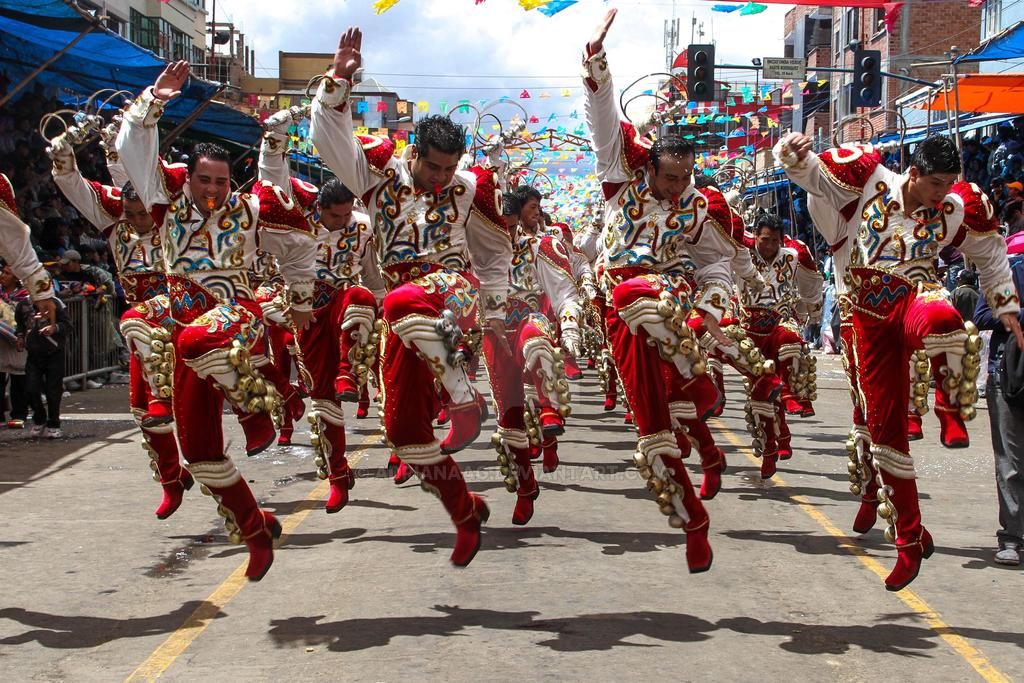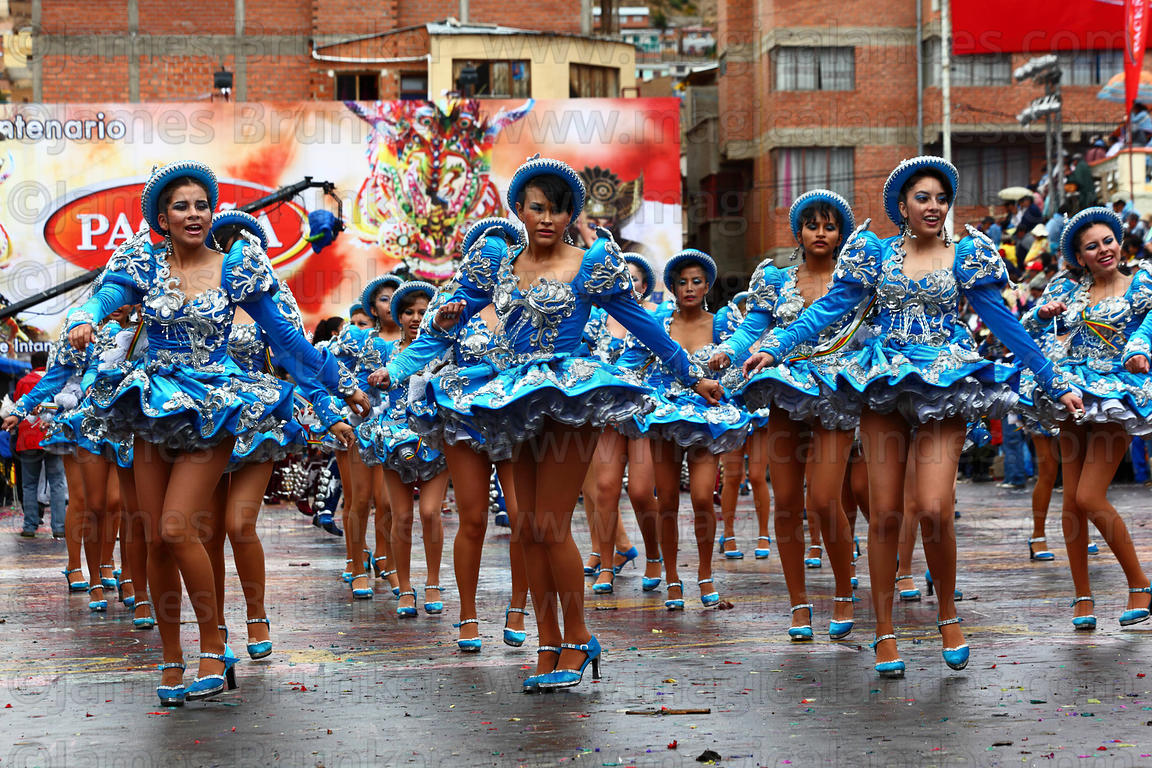Bolivian Culture
Bolivia's population has about 80 percent
indigenous roots. About 20 percent of the population are
native indigenous peoples
where there are over 30 different types of indigenous groups in the country with the two greatest making up more that 40 percent (each)
are the Quechua's and Aymara's. Because the country has deep indigenous roots, indigenous culture is embedded in modern day culture
and Bolivia is also known for some of their traditional clothing. Most of the native people's of Bolivia work in the streets selling either
food, fresh beverages, candies, or homemade jewelry.
Carnival season is the largest event in Bolivia that attracts the most tourists. This festival lasts a few days and was originally an indigenous
festival that began over three centuries ago. The festival throughout the years have been incorporating more Christian rituals but are
still centered around the indigenous culture. The festivities consists of different groups singing and dancing down the main streets with
extravagent costumes. These costumes are crucial because they help tell the story that the dances are telling. Each dance has its own history and
ancient story behind it and the costumes that the dancers wear all help tell it. There are a variety of dances such as Caporales, la Diablada, Tinkus,
Morenada and many more. This festival takes months of preparation and usually everyone in the city are off from work and it's tradition to
have water-balloon fights with everyone (even strangers) throughout the festivities.
TINKUS MORENADA
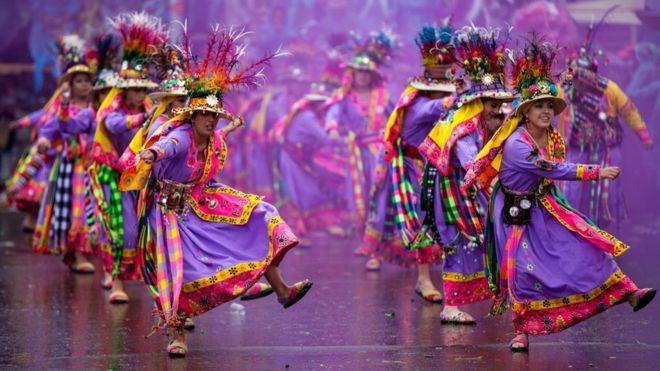
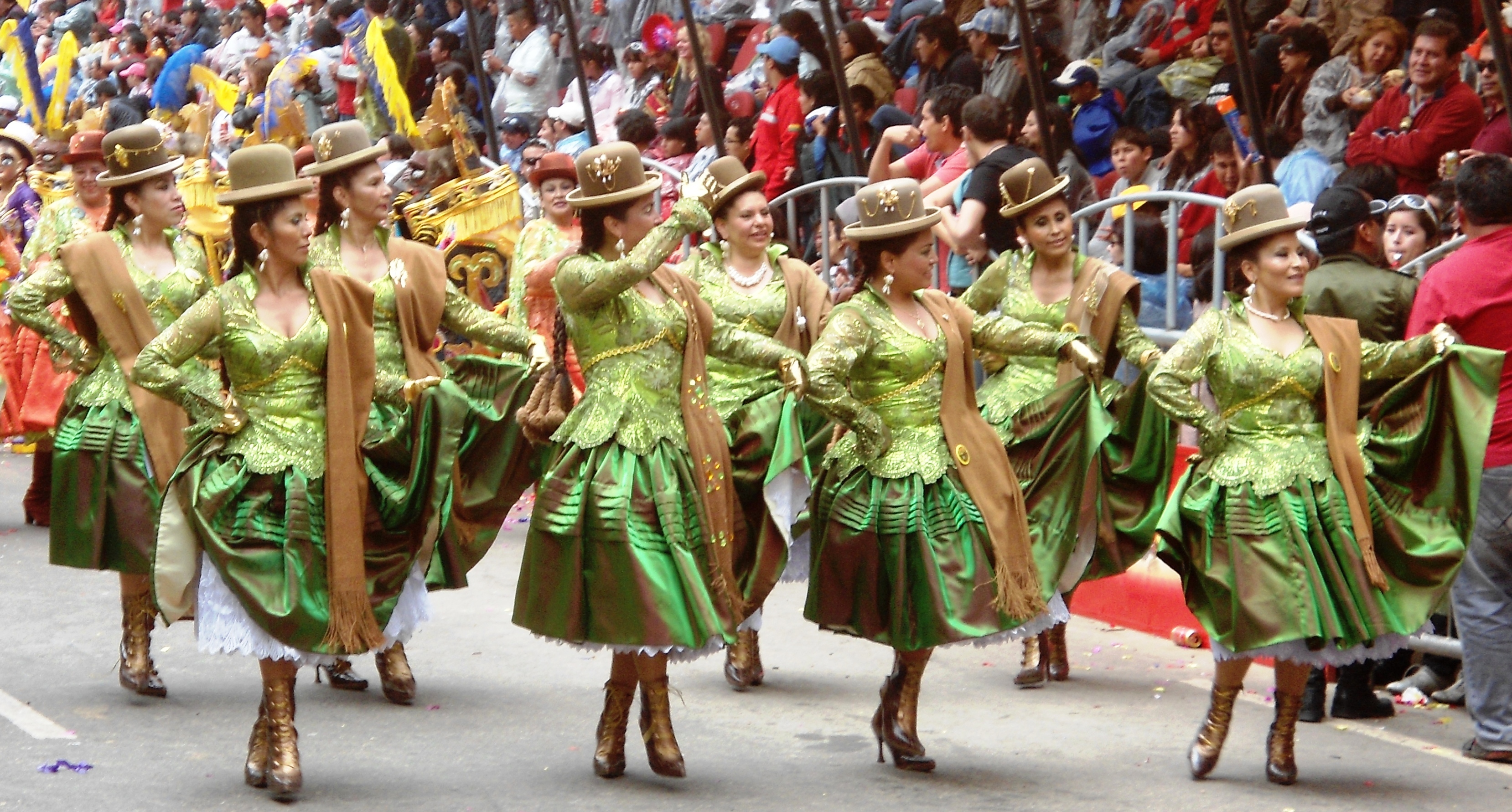
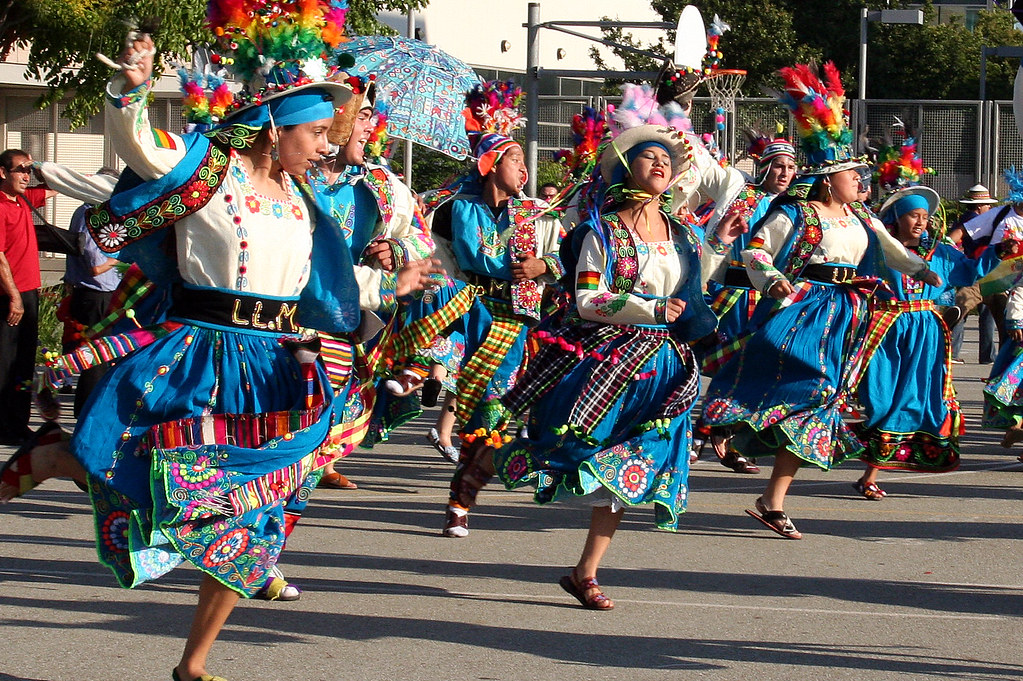
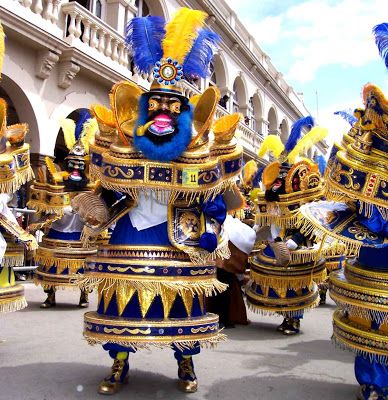
Traditional
Indigenous Clothing
Local Streets
Indigenous clothing are full of vibrant colors and the country's native groups Bolivian local streets are filled with indigenous people's selling a variety of
continue to wear some traditional piece of clothing. Most of the native groups from products that range from food to jewelry. The food that they sell are typically hand-
Bolivia live in the highlands near the mountain wear it tends to be a lot colder than in picked products that they either farm or collect such as fruits or potatoes. You can also
the country's lowlands where the weather is moderately hot. Because they live in colder find vendors with small cart selling freshly squeezed juices from fruit that they collect.
regions, many of their clothing is thicker and warmer. The clothes are made out of alpaca Just like in NYC, you can find carts selling typical street food like anticuchos (which
or llama fur in some cases are kind of like shishkababas, sandwiches, empanadas, and many more.
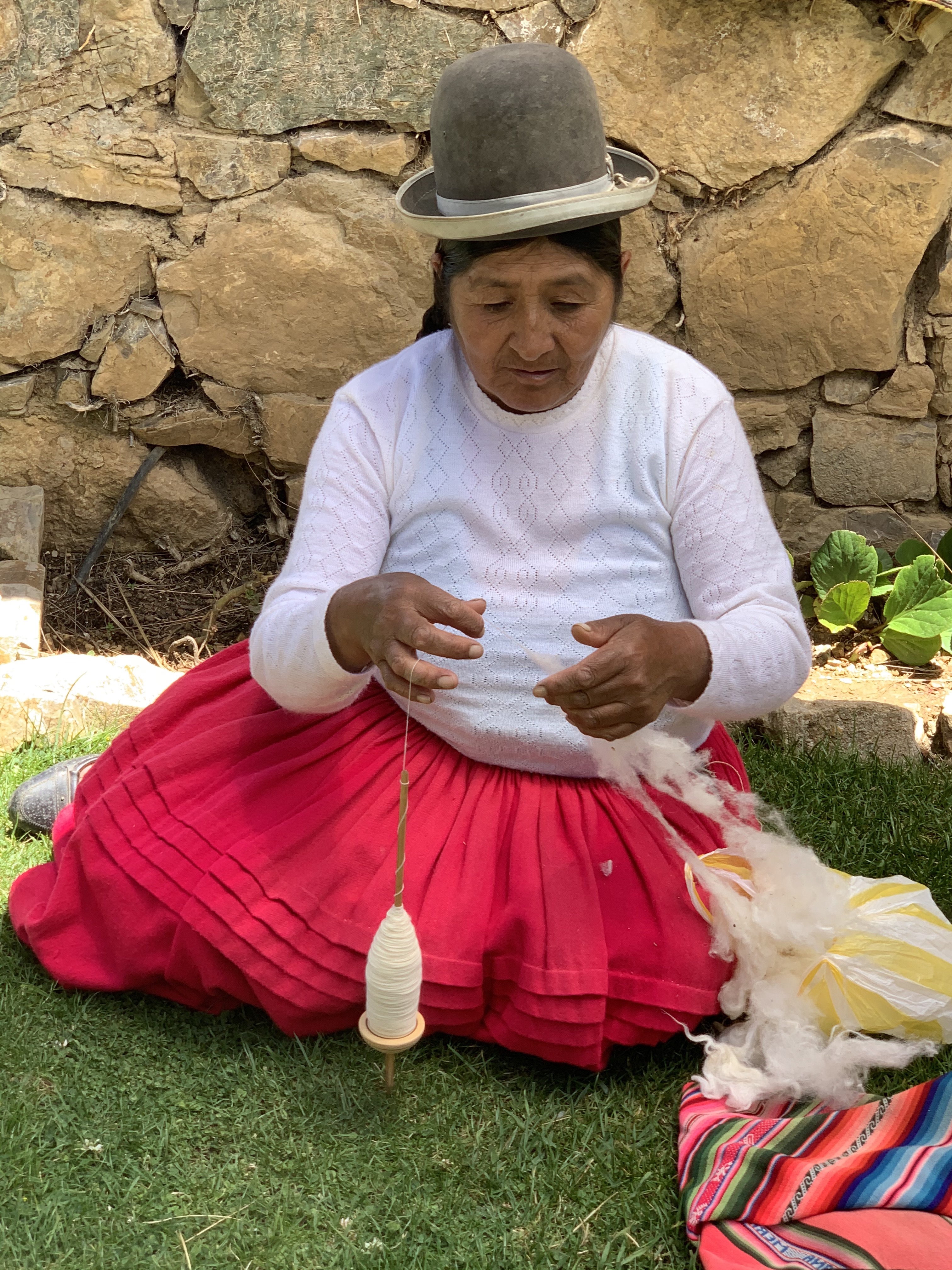
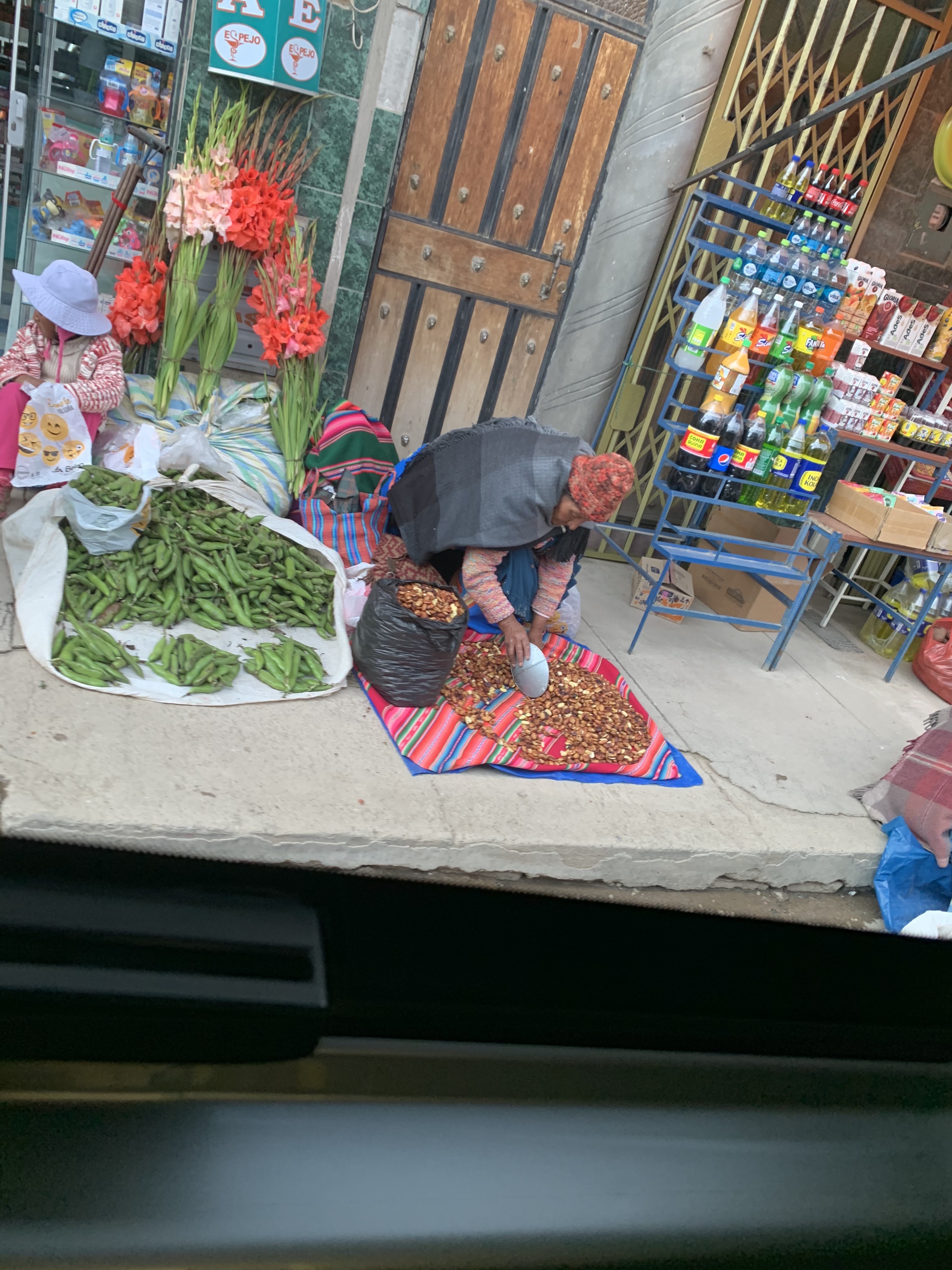
Indigenous woman weaving alpaca fur Street vendor selling vegetables

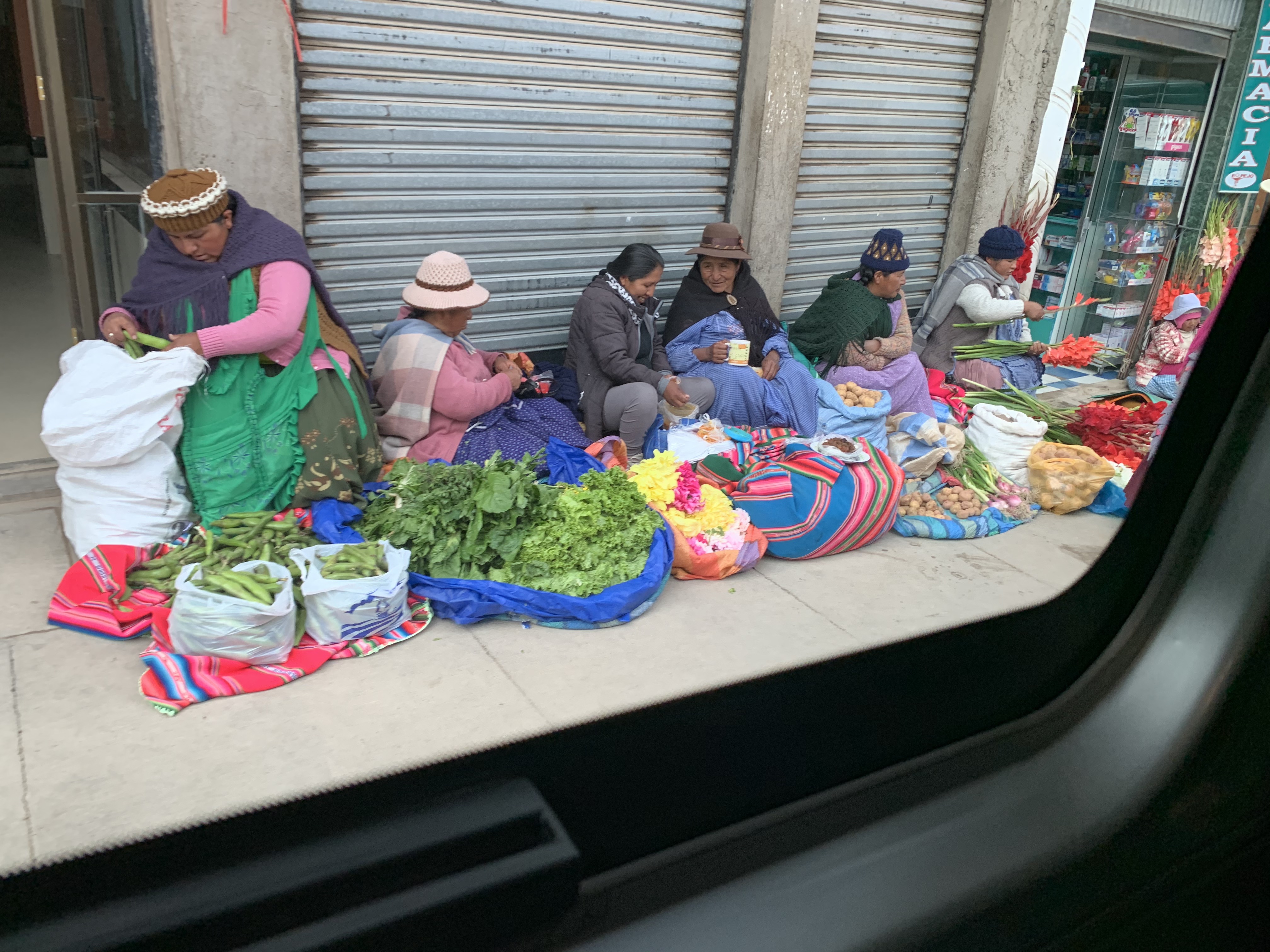
Indigenous girls wearing traditional clothing Street vendors in La Paz, Bolivia selling vegetables and fruits
Go to the top of the page
where there are over 30 different types of indigenous groups in the country with the two greatest making up more that 40 percent (each)
are the Quechua's and Aymara's. Because the country has deep indigenous roots, indigenous culture is embedded in modern day culture
and Bolivia is also known for some of their traditional clothing. Most of the native people's of Bolivia work in the streets selling either
food, fresh beverages, candies, or homemade jewelry.
Carnaval
de Oruro
Carnival season is the largest event in Bolivia that attracts the most tourists. This festival lasts a few days and was originally an indigenous
festival that began over three centuries ago. The festival throughout the years have been incorporating more Christian rituals but are
still centered around the indigenous culture. The festivities consists of different groups singing and dancing down the main streets with
extravagent costumes. These costumes are crucial because they help tell the story that the dances are telling. Each dance has its own history and
ancient story behind it and the costumes that the dancers wear all help tell it. There are a variety of dances such as Caporales, la Diablada, Tinkus,
Morenada and many more. This festival takes months of preparation and usually everyone in the city are off from work and it's tradition to
have water-balloon fights with everyone (even strangers) throughout the festivities.
DIABLADA
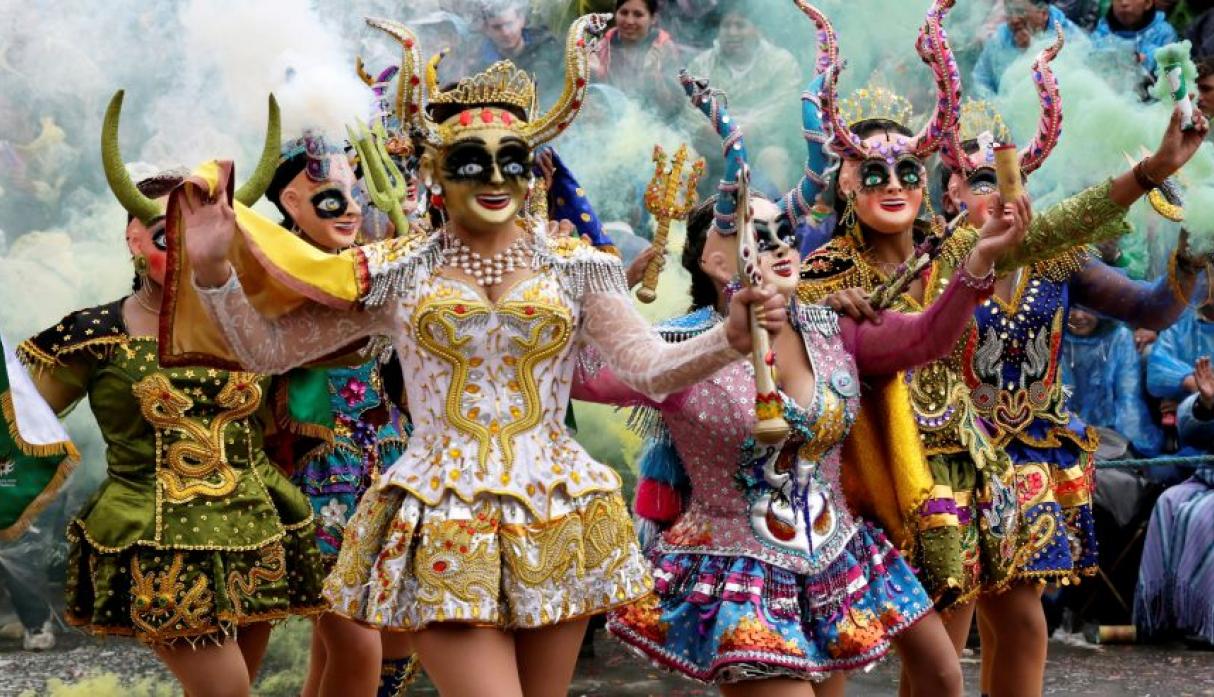 |
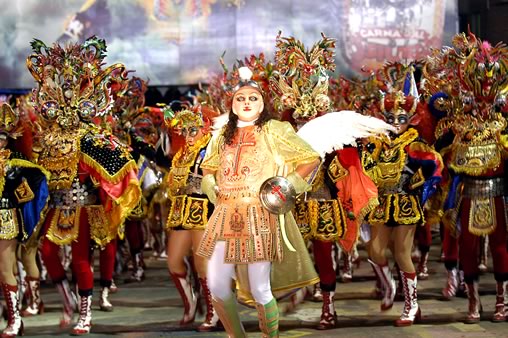 |
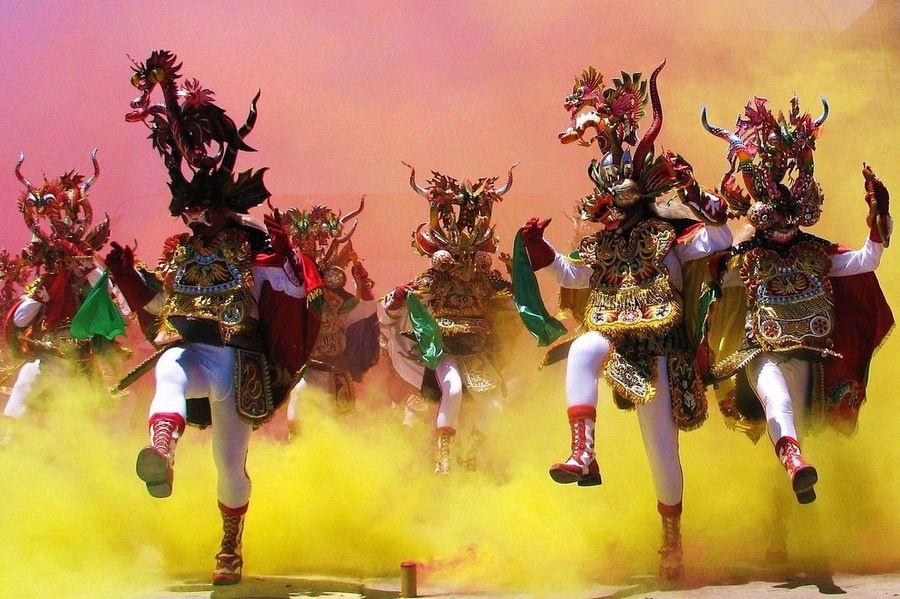 |
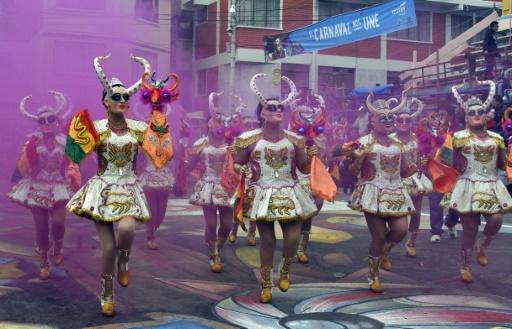 |
TINKUS MORENADA




Indigenous clothing are full of vibrant colors and the country's native groups Bolivian local streets are filled with indigenous people's selling a variety of
continue to wear some traditional piece of clothing. Most of the native groups from products that range from food to jewelry. The food that they sell are typically hand-
Bolivia live in the highlands near the mountain wear it tends to be a lot colder than in picked products that they either farm or collect such as fruits or potatoes. You can also
the country's lowlands where the weather is moderately hot. Because they live in colder find vendors with small cart selling freshly squeezed juices from fruit that they collect.
regions, many of their clothing is thicker and warmer. The clothes are made out of alpaca Just like in NYC, you can find carts selling typical street food like anticuchos (which
or llama fur in some cases are kind of like shishkababas, sandwiches, empanadas, and many more.


Indigenous woman weaving alpaca fur Street vendor selling vegetables


Indigenous girls wearing traditional clothing Street vendors in La Paz, Bolivia selling vegetables and fruits
Go to the top of the page
